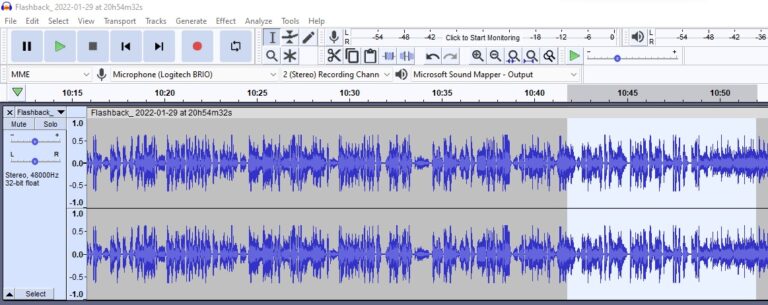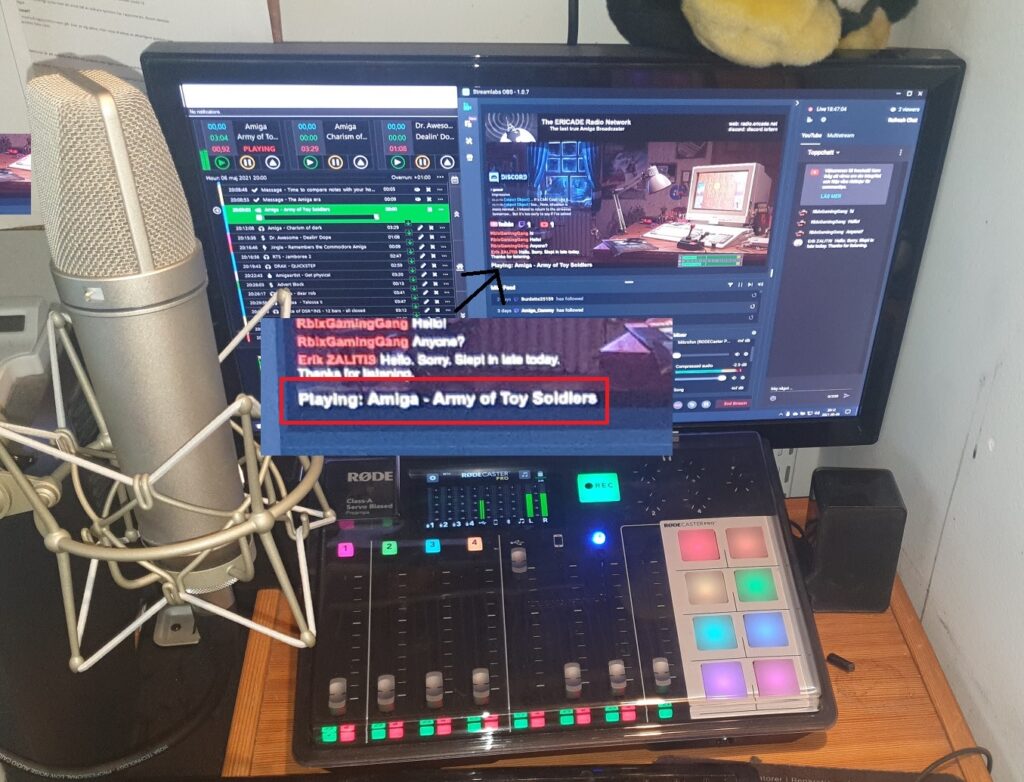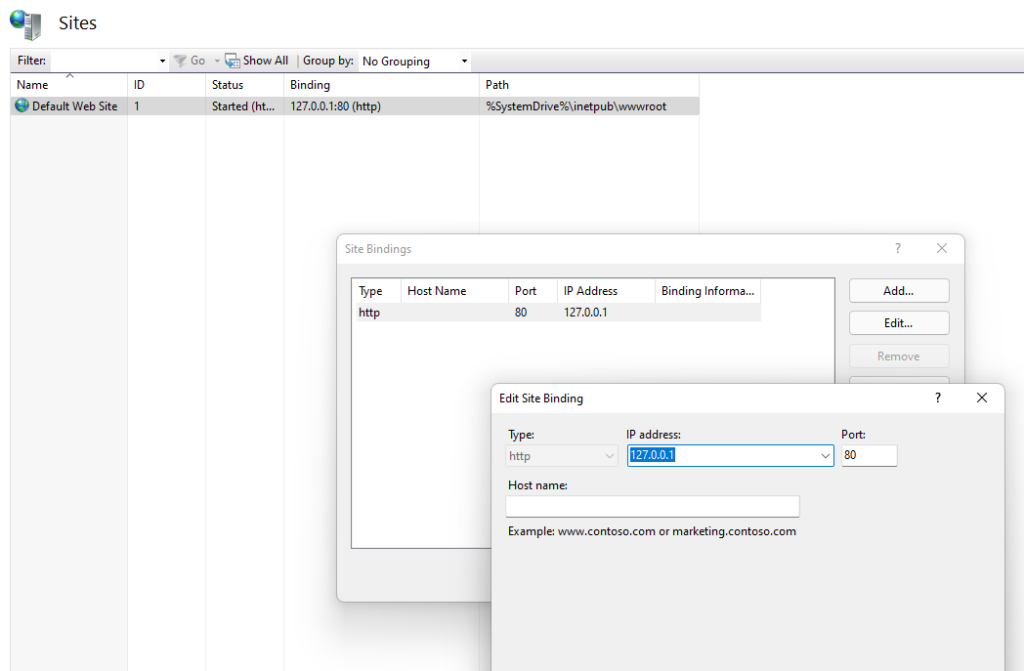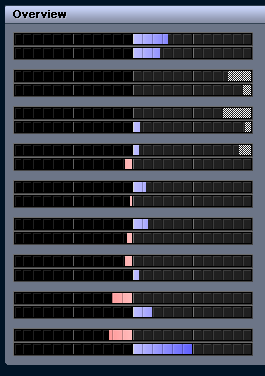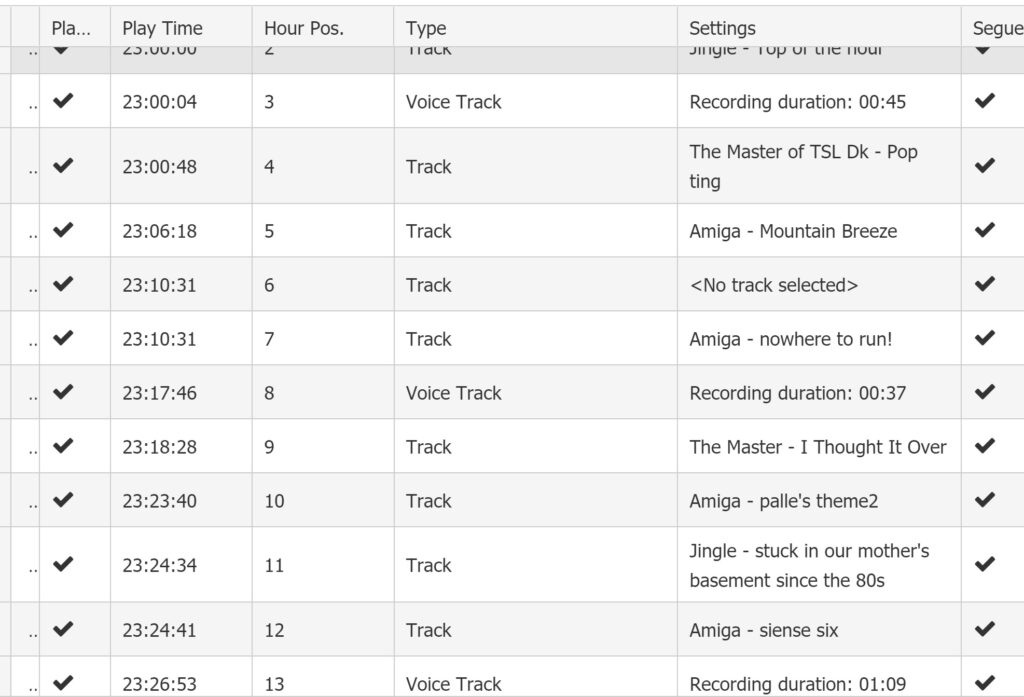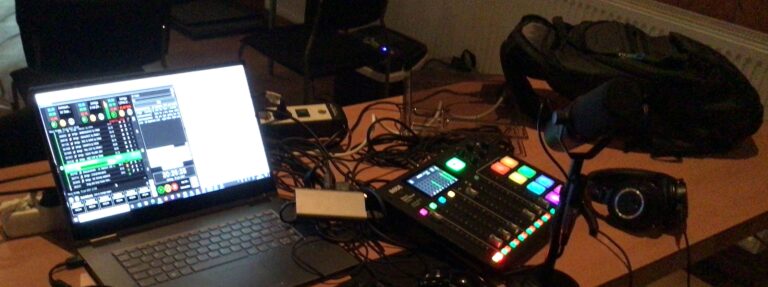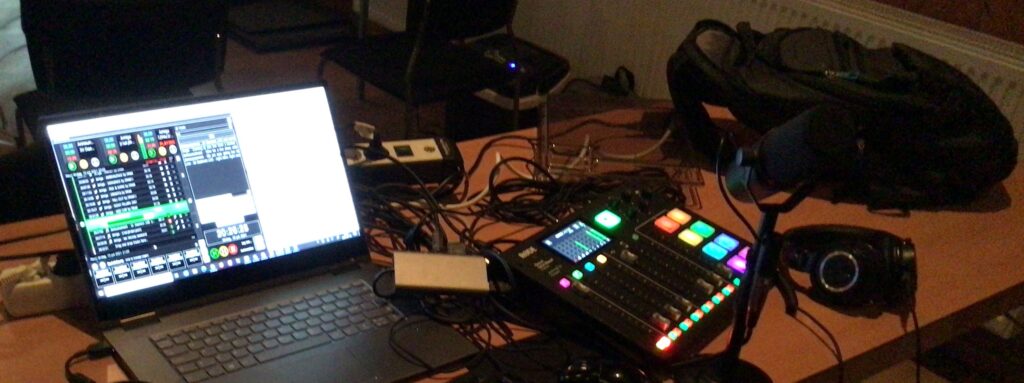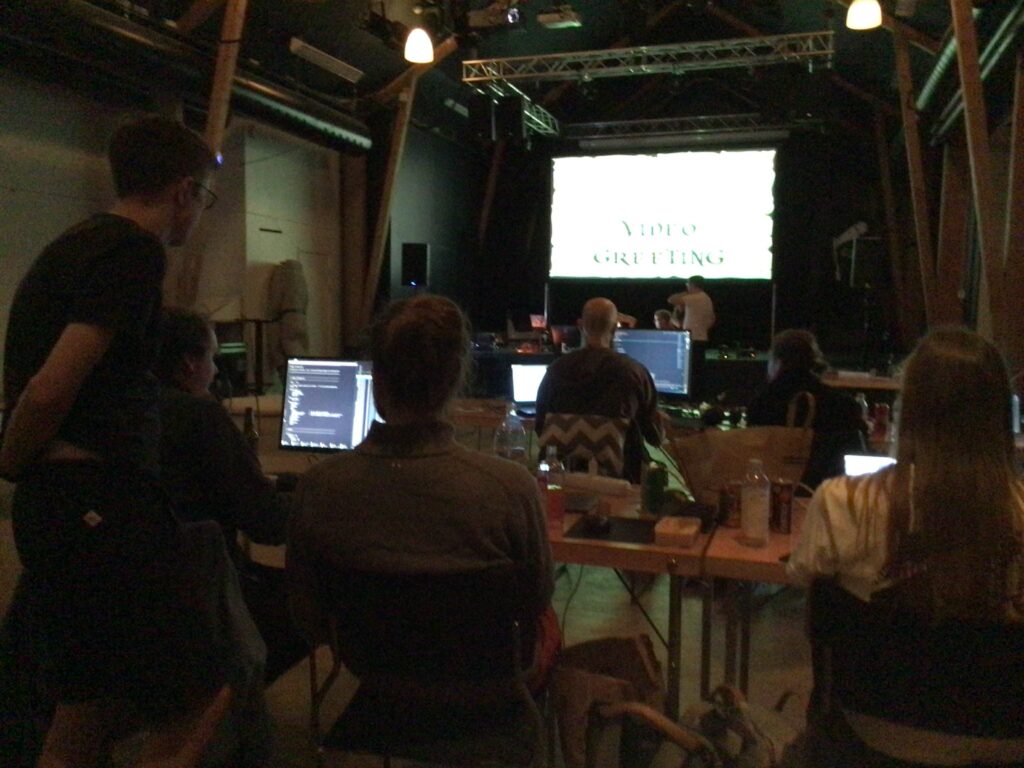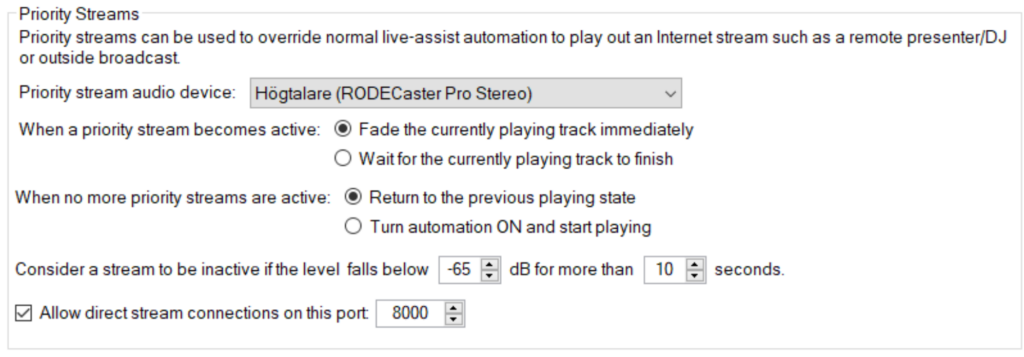On Friday the 11th of December 2020, I made a one hour long show on this station. It was without a name and I soon wanted to continue producing more of those shows. I thought about naming it after what I call the hours between 9pm and 11pm: the “golden hours”. It’s a time of relative quiet and nothing that needs to be done. So, you relax and just chill. But I realized that it was a bad name, given it’s close to another phrase that has sexual meanings. Then one of the users at Discord suggested making it into a podcast and a few weeks later, that’s exactly what happened. Therefore, it’s both a show that now runs on Saturdays at 9 pm and a podcast. It’s first broadcast and a few hours later made into a podcast episode. Today, the show/podcast is known to the world as “Flashback, tracks from the past”.

But this is not the history of the show. That’s something I will write later, so let’s instead look into how an episode is made. I’ll walk you through a fictitious episode of the show, just to give you an idea. Remember that all the pictures can be clicked on.

It’s Monday and work is over. in those “Corona-laden days”, it does not matter as much as I am already at home. A Discord-channel just announced that the Revolution 2022 demo party in New Zeeland will be held this Saturday. And good news, there will be a tracked music competition. I directly know, I just must make a top list episode and play all those tunes. Generally, demo parties will not allow previously released songs to enter the competition, so I cannot have them in advance. Next step: I go to their homepage and note the local time using a converter.

I note that their tracked music competition will run at Saturday morning at 6 am Swedish time. Perfect! I have about 12 hours to get the music as my show will air at 9 pm Swedish time and I take time to record the show. Swiftly, I compose an email and send it to the organizers, asking them to provide me with the music as soon as the competition is over. They’re almost always busy, as a demo party is a lot of work and very stressful. Some orgas are super helpful, whereas others don’t bother to respond at all. The response comes on Wednesday, and they tell me they will try to send of the entries as soon as the party ends on 9 am Swedish time. This compacts my time frame even further, but I have no choice. The songs often later appear in various sites such as ModArchive and Modland. But I don’t know when they will be there or if all will be. It’s not uncommon for some of the songs to go missing due to orgas forgetting to upload them. They also note that I really must push any Amiga modules to mono due to the weird wide stereo the Amiga has. I spend some hours in the evening, adding that function to the script I use to convert the modules to mp3-files for the broadcasting software. This script converts the tracked music files, normalizes them, and adds the instrument-lists to the mp3 comments. Friday evening, and I setup the equipment for recording the audio of the demo party stream. My idea is to record the party Twitch-stream as a backup if I cannot get one or two of the songs working due to some weird reason. I need to be up before 6 am, so I set the clock radio to wake me up.

Saturday morning, I wake up mere minutes before the compo as I overslept the alarm. I barely manage to get the recording started before the competition begins. I note down thoughts on each of the entries. As a rule, I comment on quality and how the songs sound. I often use words to describe speed, complexity, and my immediate feelings for it. Often, I must listen to them the first time while writing the manuscript. But today I lie in my bedroom with a cup of coffee, playing the stream on the TV with the Chromecast. The party ends at 9.45 am due to the obligatory delays those parties always have due to technical problems. Covid19 has been around a long time now, but not long enough so the orgas has learned how to broadcast the streams without interruptions. Few parties manage to get this right. The delays and the problems are now part of the experience and bothers no one. At 10 am, I send a reminder to the orgas and ask them to send the email. The hours go as I wonder what to do if I can’t get the files in time. If the time expires I can either use the recording from the stream or must create another show without having time to prepare it properly. This will become another “Just playing music and talking” episode. Those are nice but does not really advance the podcast much in the direction of storytelling or adding something to the retro hobby itself.
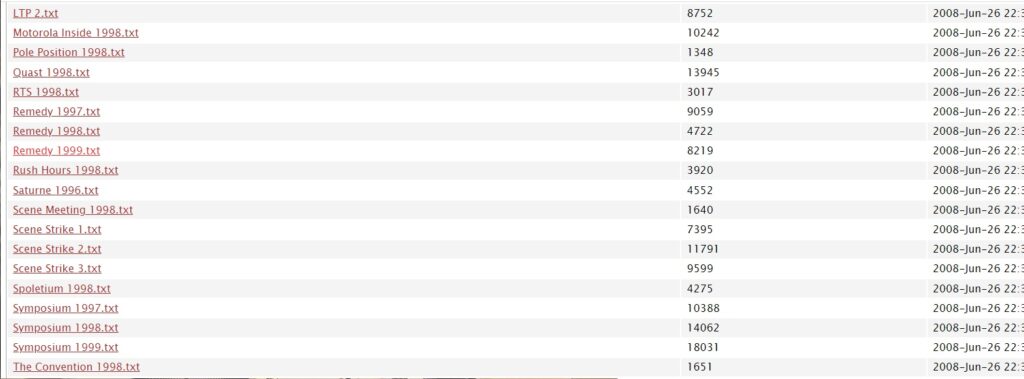
At 3 pm, the mail arrives. They have uploaded the files to Modland already, and I get a link to the ftp-server. Download is simple, but the files are named inconsistently, and I must mail again to get their chart positions and then a third time to point out the winner is listed as both first and fifth position and I can’t find the song on position 7. Turns out the file name and the song name are different.
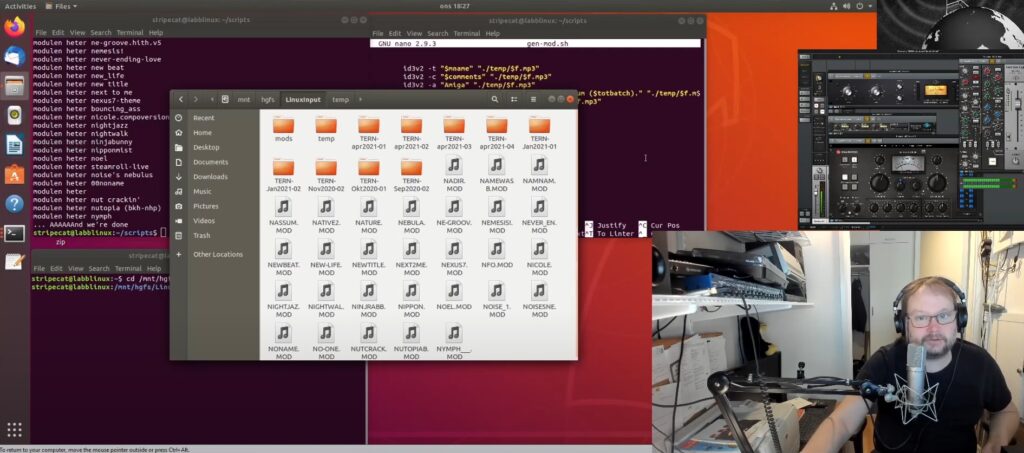
I sift through the files and note two .mptm modules. That’s a format my script based on xmp does not reliably handle, so I fire up OpenMPT for those. Two files require an emulator and is stored away in another folder for now. The rest go into a folder called LinuxImport as I fire up VMWare workstation and power up the Linux-based converter machine. This virtual machine can read and write in the folder on my D:\-drive in Windows. When I start the script, it picks up all files in LinuxImport and converts them. The mp3-files are now ready, but one is just 2 kb, which means xmp failed to understand how to play it. That module has to be manually handled with OpenMPT. The two files requiring an emulator is a .d64 and some Nintendo NES tune. The former is easy to put into C64 Forever and then record it with SoundTap. The other turns out to require Googling and a lot of experimentation. It does not sound right and some more Googling makes me understand it must have the emulator running in NTSC-mode to work. Now I have all 15 tracks in mp3-format. The script has properly generated the instrument-lists as comments and uses the album fields to store the monthly batch number and what kind of file it was before conversion and its original name. This must be manually created for the tunes that needed to be handled outside the script. We’re now close to 6 pm, and I’m a bit stressed as I need to start recording around 6 pm, which I know will not happen.
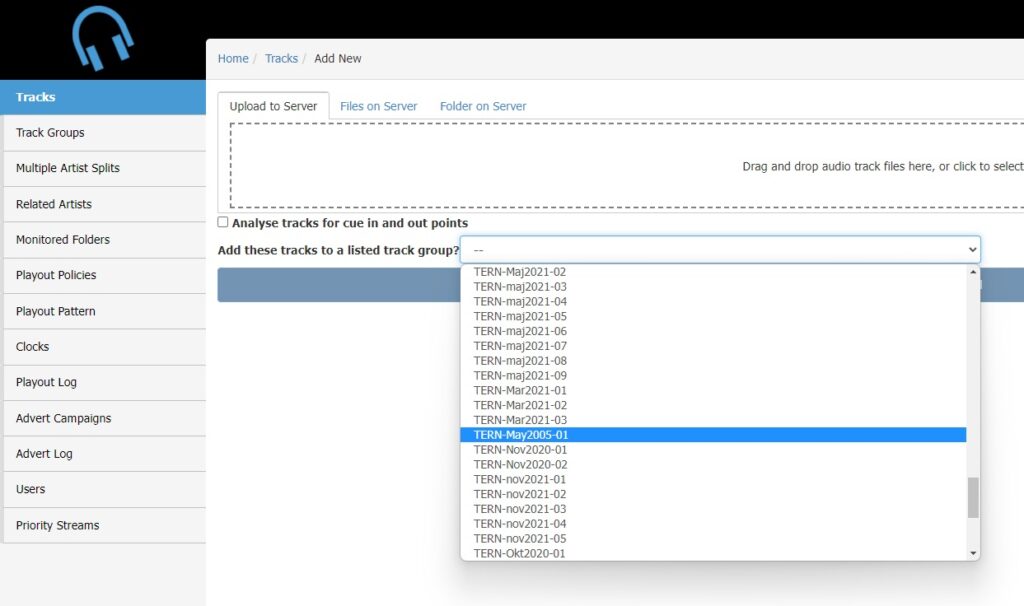
The mp3-files are then uploaded to PlayIT Live, the broadcast automation system and and I begin to work my way through them. The identity of the artist must be manually determined as modules don’t have an artist field. Artists are notoriously horrible at documenting their artwork, so I must check and double check my notes and the final chart from the demo party. I often prepend the position of the track to the artist during this phase and later remove it after the broadcast. This way, I’m less likely to put the songs in the wrong order. Then I listen to the start and end of each song and set the start and endpoint for it. Many songs are meant to loop forever, so sometimes I must determine a manual ending before the end of the file and its intended loop-point. Otherwise, the song would just abruptly stop. I note that it’s past 7 pm and I start writing my script in a haste. Normally I back-announce the songs. That is, I talk about them after playing them. But the top list episodes need normal announcing, as I must talk about the artist and tune before playing it. Each speech must contain artist, name of the entry, place, points (if available), country of artist and/or a funny or insightful commentary on the songs. Here are a few real examples from previous demo party episodes:
“On place 12, we get a weird start of a song, feeling they just let the recorder run and forgot the actually create a song. You do get a weird pumping sound, as if they were trying to inflate a tire. How this got 36 points is totally beyond me. And the song never starts but should be known as Patjalanda and its by Kaunis Espanjalaien Tyttoe. Please stay until its done – it gets better later in the program. I’m sorry for this.”
“The true top list starts on place 10 with the tune Tuurilla mukaan by Defilus. It gets 37 points. Aaaaand, there’s nothing wrong with your radio, it’s meant to sound like a classic “oumpapa”-song cut to ribbons by a mad and possible drunk sound engineer. I’m innocent here!”
“Bronze time, people. Meritaehti sends the show into a total Tailspin of great guitar riffs and synth chords. This is enough to get it to third place and 55 points. It enters and leaves swiftly and precisely.”
“The zombies are coming! You have barricaded yourself and your friends in a small shack in the middle of nowhere. There is a knock on the door. As you walk towards it, artist Lampovyi Ninja screams “Don’t open that freaking door”. The tune places itself at place 5 and wakes up some lawyers from Nintendo.” “
I don’t know about Tipperary, but EA gets the silver medal with “Long way to DiHalt”. It’s like the last tune, also by EA, so you can probably fuse them together.”
“Another artist I have problems finding info about. It’s jump error of Team Moritz and the tune is called Alien Slaphead. Poor aliens. That’s what we do to them…
On the other side, watch any Hollywood movie, and as you can see it’s hardly unprovoked.”
Place 4.” “Slaze of Defiance comes from Sweden and tells me that he is spending many hours of his spare time composing tunes right now. And it shows, he has been hitting the demo compo charts at Forndata 2021 and earlier Revision 2021. Rumor is that he is aiming for Edison Party 2021 as well. We’ll see. The tune is called Temporal Anomaly.”
“There’s nothing strange with that. Distortion has sounded that way since Jimi Hendrix invented it”.
Not all comments are humorous, as I try to mix funny banter with some notes about the tune itself. But as I try to talk no more than 15-25 seconds between the songs, I cannot do both funny and informative at the same time.

I now open PlayIt Live, the software that powers the radio station, and start ordering the playlist.
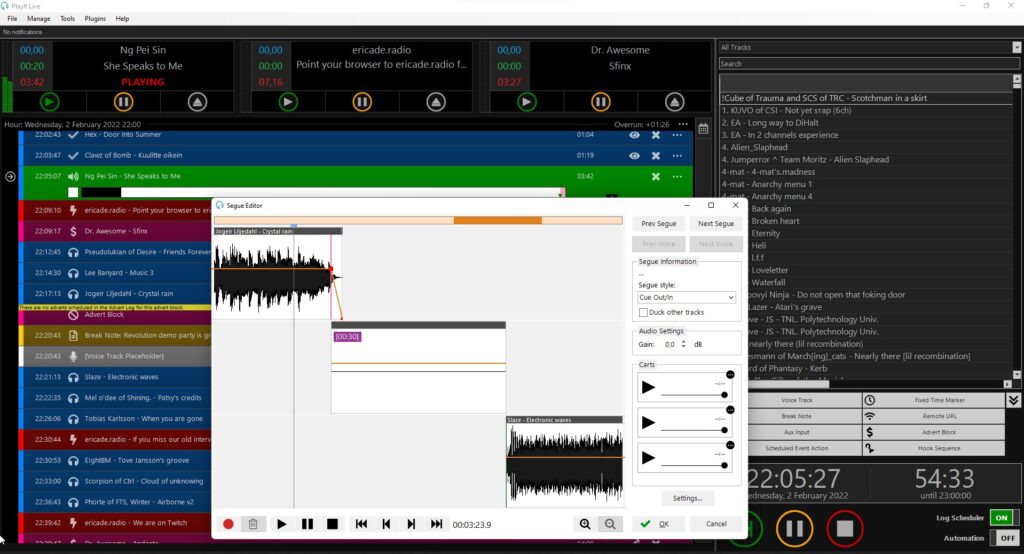
It’s close to 8 pm and I have one hour and 15 minutes to get it done. I add the break notes into the playlist. This makes generating the playout easier for the podcast notes. Recording lines should be easy, but it’s super stressful and I must rerecord each track until I’m happy with it. The stress makes it easy to become forgetful and starting to mispronounce things. I can get into a loop where I pronounce a word wrong three times in a row as stress gets the better of me. It’s easy to get into a mood where you get more and more worked up over minor errors and finally cannot even read the lines out correctly at all. When I read the lines loud to figure out the timing, I rarely ever make any errors. When I record, I must make multiple takes as I want it to sound as good as I can. I guess stress handling is not my forte. This whole process is done by something called “Voice tracking”. This means that I record my speeches between the songs without having to wait for them to complete, as you used to have to do back in the day. I see and hear the last five seconds of the song ending, record my voice and then advance the next song.

8.30 pm I record the 10 pm top of the hour speech that runs directly after the show and points out the show will be released as a podcast. Now I need to check and tighten the segues, so my speech leaves over to the tune in a timely (“tight”) manner. I also double check the order of songs and the timing. Lastly, I trim the handover to the automated broadcast and calibrate the top of the hours. 9 pm, the show goes on the air, and I shift focus to other tasks as I have another podcast as well.
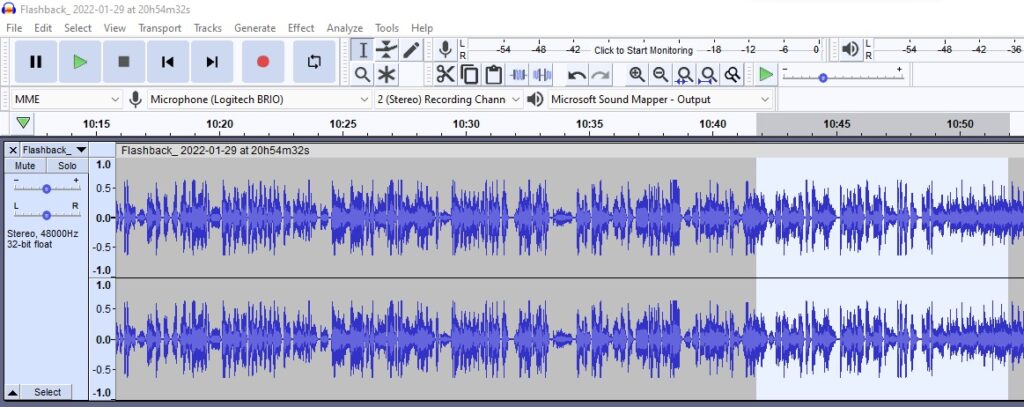
10 pm, the show ends, and I grab the processed broadcast copy in wav-format. This is the high-quality master directly from the broadcast processor. It then cut it to its proper start and end, correcting any problems found and making sure it’s ok. The master is then saved as a .flac and then fed back into “the best of ericade.radio”, the rerun station. I fire up Gimp and create the image that must go along with the podcast. I have a template with the Flashback-logo on. It’s my friend Mattias Jadesköld, who made it out of the box art for the game “Flashback” and then fixed a nice caption for it. I add two small pictures on the top of it to depict the demo party. The Revolution demo party logo is now added as one of them and then a nice picture from the winning Amiga demo from that party! Now starts two hours of creating the mp3 and mp4 files with all data about the episode stored in them. I yank the playout log from PlayIT Live and run it through Excel and Notepad to cut the playlist and my manuscript to size. This is added to YouTube along with the MP4-file. I must have two copies of it since YouTube limits all texts to 5000 characters. I then go through all timestamps and check them, so you can jump between songs and my speech, selecting exactly what you want to listen to. I must sync my two copies of the script. The YouTube clip is then switched to public and now the listeners start enjoying it. My work is not done. I now have to fill in the podcast episode data in the ericade.radio website and the news blurb. Then I test the episode to see the mp3-file is playable from the webserver. I once added the wrong mp3-file, and Spotify still plays the wrong file for this episode to this day. Most podcast sites, read the RSS-feed and then refuse to correct what it once has read or copied. Spotify copies the mp3-file to its own CDN (Content distribution network). They have no standard process to correct errors, so you got to double check. Almost done! I check and double check that everything has been published. Then I hotwire station 2 – “The best of ericade.radio” to play the fresh episode.

This makes it available in the database powering the website, I can then add all the show details. And then there is the PR department, once again yours truly, that must tell the world. This can be walking on eggshells since no one likes spam. So, I carefully think about who needs to hear the announcement. Demo party episodes can be posted in groups and channels that talk about that. Retro gaming episodes and stories from retro Sweden should not be posted to DemoZoo or some other Discord server dealing with the demo scene. I feed the social media dragons with the announcements and then it’s done. At this time today I have worked almost 9 hours to get this broadcast ready. This does not include preparations. All in all, this episode took nearly 11 hours to get to the world, while being one hour long for the listeners. The few comments I get arrive. They are generally positive. But no one seems to share or link to it, so it falls to me to continue building the listener base. So far, the statistics is not good, but it’s still something I enjoy doing as it’s a challenge. So, listeners/viewers are optional for everyone producing stuff for free. You cannot do this for the love, the money, and the popularity. The drive is creative expression. And why not, Covid19 has us all longing for clear skies again, so while waiting, we sit at home and create.
